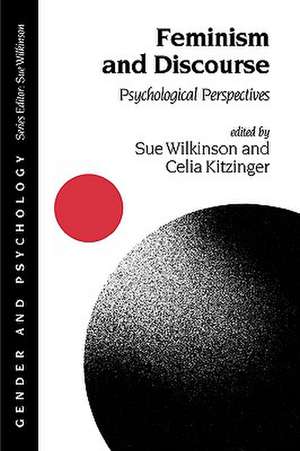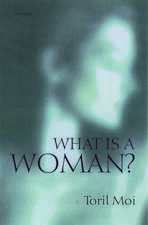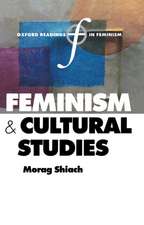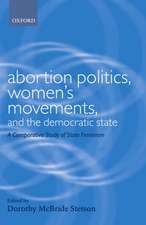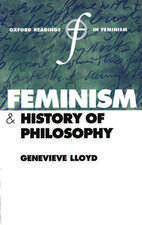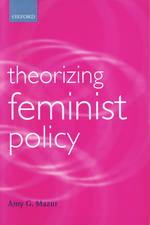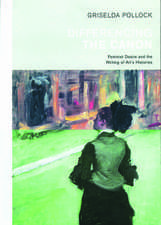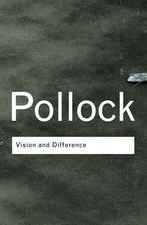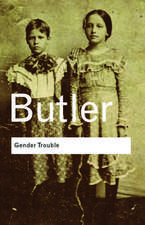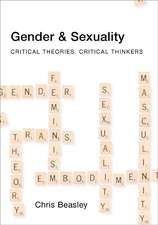Feminism and Discourse: Psychological Perspectives: Gender and Psychology series
Editat de Sue Wilkinson, Celia Kitzingeren Limba Engleză Paperback – 30 oct 1995
| Toate formatele și edițiile | Preț | Express |
|---|---|---|
| Paperback (1) | 437.49 lei 6-8 săpt. | |
| SAGE Publications – 30 oct 1995 | 437.49 lei 6-8 săpt. | |
| Hardback (1) | 1214.96 lei 6-8 săpt. | |
| SAGE Publications – 30 oct 1995 | 1214.96 lei 6-8 săpt. |
Preț: 437.49 lei
Preț vechi: 514.70 lei
-15% Nou
Puncte Express: 656
Preț estimativ în valută:
83.71€ • 87.64$ • 69.27£
83.71€ • 87.64$ • 69.27£
Carte tipărită la comandă
Livrare economică 05-19 aprilie
Preluare comenzi: 021 569.72.76
Specificații
ISBN-13: 9780803978027
ISBN-10: 0803978022
Pagini: 208
Dimensiuni: 138 x 216 x 16 mm
Greutate: 0.27 kg
Ediția:1
Editura: SAGE Publications
Colecția Sage Publications Ltd
Seria Gender and Psychology series
Locul publicării:London, United Kingdom
ISBN-10: 0803978022
Pagini: 208
Dimensiuni: 138 x 216 x 16 mm
Greutate: 0.27 kg
Ediția:1
Editura: SAGE Publications
Colecția Sage Publications Ltd
Seria Gender and Psychology series
Locul publicării:London, United Kingdom
Recenzii
`I find the issues raised by these contributors to be both interesting and significant' - Language and Literature
`Whether you are a feminist psychologist or simply a psychologist engaging with the challenges of discourse analytic work, this book is highly recommended... this is the first text of its kind dealing specifically with discourse analysis from a feminist psychological perspective... [a] long overdue collection. As a seminal work adding to the debate surrounding discourse analysis, it is a vital book for anyone engaged in discursive and/or feminist psychological work' - The Psychologist
`This much-needed project brings together the newest scholarship on the intersection of discourse analysis, feminism and psychology... a stimulating and complex picture of the state of theory and practice in politically progressive psychological discourse analysis' - Discourse & Society
`Whether you are a feminist psychologist or simply a psychologist engaging with the challenges of discourse analytic work, this book is highly recommended... this is the first text of its kind dealing specifically with discourse analysis from a feminist psychological perspective... [a] long overdue collection. As a seminal work adding to the debate surrounding discourse analysis, it is a vital book for anyone engaged in discursive and/or feminist psychological work' - The Psychologist
`This much-needed project brings together the newest scholarship on the intersection of discourse analysis, feminism and psychology... a stimulating and complex picture of the state of theory and practice in politically progressive psychological discourse analysis' - Discourse & Society
Cuprins
Introduction - Sue Wilkinson and Celia Kitzinger
PART ONE: EMPIRICAL WORK
The Bleeding Body - Kathryn Matthews Lovering
Adolescents Talk about Menstruation
Sexual Harassment - Celia Kitzinger and Alison Thomas
A Discursive Approach
`What Is It?' Masculinity and Femininity in Cultural Representations of Childhood - Erica Burman
Conflicting Opinions? `Anorexia Nervosa', Medicine and Feminism - Julie Hepworth and Christine Griffin
PART TWO: THEORETICAL ADVANCES
Feminist Discourses and Women's Heterosexual Desire - Wendy Hollway
Identity, Politics and Talk - Sue Widdicombe
A Case for the Mundane and the Everyday
Romantic Discourse and Feminist Analysis - Margaret Wetherell
Interrogating Investment, Power and Desire
Pragmatism, Extravagance and Feminist Discourse Analysis - Corinne Squire
Relativism, Reflexivity and Politics - Rosalind Gill
Interrogating Discourse Analysis from a Feminist Perspective
PART ONE: EMPIRICAL WORK
The Bleeding Body - Kathryn Matthews Lovering
Adolescents Talk about Menstruation
Sexual Harassment - Celia Kitzinger and Alison Thomas
A Discursive Approach
`What Is It?' Masculinity and Femininity in Cultural Representations of Childhood - Erica Burman
Conflicting Opinions? `Anorexia Nervosa', Medicine and Feminism - Julie Hepworth and Christine Griffin
PART TWO: THEORETICAL ADVANCES
Feminist Discourses and Women's Heterosexual Desire - Wendy Hollway
Identity, Politics and Talk - Sue Widdicombe
A Case for the Mundane and the Everyday
Romantic Discourse and Feminist Analysis - Margaret Wetherell
Interrogating Investment, Power and Desire
Pragmatism, Extravagance and Feminist Discourse Analysis - Corinne Squire
Relativism, Reflexivity and Politics - Rosalind Gill
Interrogating Discourse Analysis from a Feminist Perspective
Descriere
This book provides a showcase for a wide range of discourse analytical work in psychology from a feminist perspective. It constitutes a thorough critical evaluation of this approach for the feminist project of intellectual, social and political change.
Leading researchers explore the benefits and contradictions of discourse analysis and consider its value for feminist psychology. The first part of the book illustrates the application of discourse analysis to four key topics of feminist concern: adolescent knowledge about menstruation; sexual harassment; gendered representations of childhood; and anorexia nervosa. The second part contains five assessments of the usefulness of discourse analysis - both as theory and as method
